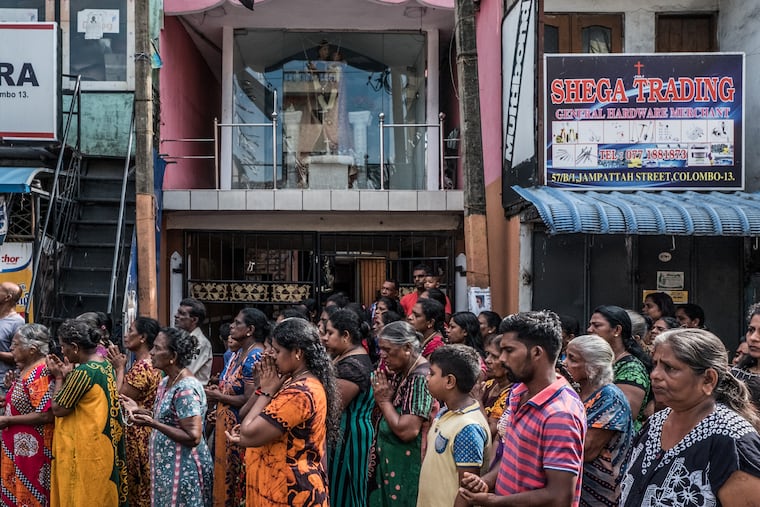Sri Lanka reveals identities of suicide bombers behind Easter massacres
The perpetrators of the attacks were well educated and from affluent homes, say officials.

COLOMBO, Sri Lanka - Nine suicide bombers, including a married couple, carried out the devastating Easter attacks in Sri Lanka which killed 359 people, authorities said on Wednesday, revealing new details about the network behind the string of bombings.
Eight of the attackers have been identified, said police spokesman Ruwan Gunasekera. The group included two brothers and a husband and wife, who blew herself up on Sunday when police closed in on a house in Colombo.
Ruwan Wijewardene, the state minister for defense, told reporters that the bombers used two safe houses in Colombo and Negombo. They came from middle-class and upper-class backgrounds, he said, and some were "quite well-educated people." One of them had studied in Britain and Australia.
Sixty people have been arrested in connection with the attacks on churches and hotels, including Mohamed Ibrahim, a wealthy businessman who owned a home in Colombo's Dematagoda neighborhood where the police conducted a raid on Sunday. At least two of his sons were among the suicide bombers.
Wijewardene said the bombers had splintered off from the National Thowheed Jamaath, an obscure Islamist extremist group based in the eastern part of the country. The leader of the splinter group carried out the suicide attack on Colombo's Shangri-La hotel, he said.
The Islamic State claimed responsibility for Sunday's attacks, but Sri Lankan authorities said its role remained unclear. Wijewardene said that there was a connection to the Islamic State "through ideology and maybe funding," but the latter was still under investigation.
Wijewardene also said that an assessment by Sri Lanka's intelligence agencies was that the attacks on mosques in Christchurch, New Zealand "motivated these people to carry it out on Easter Sunday." He declined to provide any further details on how that assessment was reached.
The country remained on edge on Wednesday, and authorities carried out a controlled explosion of a motorbike deemed suspicious in downtown Colombo and another on a package near a restaurant in the town of Katana.
Wijewardene urged citizens to remain vigilant and said further arrests would take place.
“Within a couple of days we can have total control of this situation,” he said.